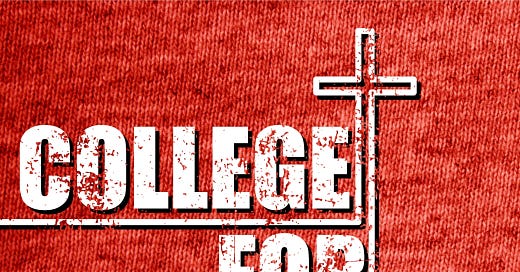College for Christians Comes to Substack
Why I've decided to self-publish my next book here at The Pietist Schoolman
No one who has published five books ought to complain too loudly about the challenges of publishing #6. But allow me to vent a bit of frustration: each time I’ve brought my proposed college guide for Christian families to a publisher, it’s been rejected. For one editor, what I’ve called College for Christians was just the wrong kind of book — too practi…
Keep reading with a 7-day free trial
Subscribe to The Pietist Schoolman to keep reading this post and get 7 days of free access to the full post archives.



